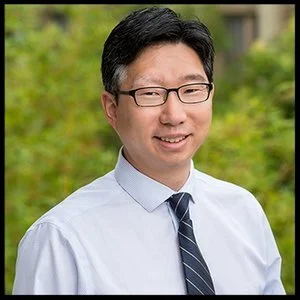Stanford Auto-Islet Transplantation Program and Human Tissue Procurement Program
Stanford Diabetes Research Center (SDRC) member and Department of Medicine (Gastroenterology and Hepatology division) Assistant Professor, Dr. Walter Park, MD also holds the position of Medical Director of the Pancreas Clinic at Stanford Hospital and Clinics. He spoke to us about two new SDRC programs that he is excited about: the Auto-Islet Transplantation Program and the Tissue Procurement Program.
The Auto-Islet Transplantation Program is a part of the broader Stanford Pancreatic Islet Replacement and Immune Tolerance program (SPIRIT). It was set up with the goal of helping a small but significant subset of patients with chronic pancreatitis who suffer from debilitating pain and are thus prevented from living a normal life. In this setting, the patient’s pancreas is removed and islets are harvested for re-infusion back into the patient. “Because this is an autologous transplant, no immunosuppression is required,” explains Dr. Park, adding, “Removing their pancreas is the last resort and it has an 80% efficacy rate for pain treatment. The idea behind re-infusing them with their own islets is to delay the onset of diabetes that would occur as a consequence of removing their pancreas”.
The Auto-Islet Transplantation Program is also expected to benefit researchers who will have access to the residual pancreas tissue. “This is very much a multidisciplinary program” says Dr. Park, noting that in addition to the Pancreas Clinic, the program includes a surgical team helmed by SDRC member Dr. Brendan Visser, SDRC member and endocrinologist Dr. Marina Basina, SDRC member and interventional radiologist Dr. Avnesh Thakor, and SDRC researcher Dr. Everett Meyer to oversee the islet harvesting and organ processing. Other members of SPIRIT include Drs. Stephan Busque, Seung Kim, Rick Kraemer, David Maahs, Bruce Buckingham, Kent Jensen and Catherine McIntyre. “It wouldn’t be possible to do this without their support and involvement” affirms Dr. Park.
Dr. Park who is also a co-founding member of the SPIRIT program adds: “This program has broader implications for diabetic patients in terms of helping support pancreatic islet intervention, regeneration, and immune tolerance efforts at Stanford and providing an infrastructural framework for future islet replacement-based therapies for diabetic patients, including those with type 1 diabetes”.
The Tissue Procurement Program is a service offered by the SDRC Clinical and Translational core facility. “Translational research in Diabetes requires moving beyond preclinical animal models and testing hypotheses on human materials. To this end, we are providing researchers access to freshly procured human organs and tissues” says Dr. Park.
Partnering with tissue procurement organizations such as the International Institute for the Advancement of Medicine (IIAM) and the National Disease Research Interchange (NDRI) has been instrumental in this effort. “These organizations provide human tissue that are unsuitable for transplantation but are nevertheless collected in a fairly rapid manner to allow it to be used effectively for human tissue research” he elaborates.
A number of organs are available through the tissue procurement program including liver, skin, adipose, muscle, pancreas, or any organ that is specifically requested by an SDRC member. The program also allows for the inclusion of donor criteria as a part of the organ procurement process. “We completed our first procurement order for skin and muscle recently. We’re excited about getting this off the ground and we expect there will be more interest from SDRC members” he says. SDRC members who are interested in obtaining human organs may contact Dr. Park or Sharon Pneh (spneh@stanford.edu) who coordinates the tissue procurement effort on behalf of the SDRC Clinical and Translational core facility.
By
Harini Chakravarthy
Harini Chakravarthy is a science writer for the Stanford Diabetes Research Center.

